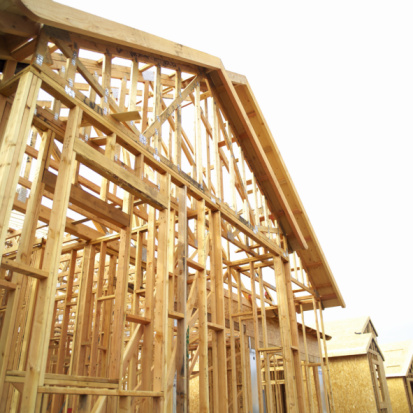Housing
Why Home Builders Can Easily Survive Higher Interest Rates
Published:
Last Updated:
Interest rates are rising and the 30-year mortgage just hit a 12-month high. Rising rates will eat up your spending power and erode the value of your fixed income investments. So, will that kill the home builders? Apparently not. Sterne Agee’s home builder analyst Jay McCanless has gone as far as to say that a near-term pullback in housing stocks actually may be a long-term buying opportunity.
24/7 Wall St. has been evaluating higher interest rates in many sectors this week, and there are some risks that higher rates could crowd other sectors. That is certainly true of the high-dividend mortgage REIT sector, and it can be true for the high-dividend utility sector as well.
Stern Agee’s favorite stocks in the home builder sector are Meritage Homes Corp. (NYSE: MTH), D.R. Horton (NYSE: DHI), Ryland Group Inc. (NYSE: RYL) and PulteGroup Inc. (NYSE: PHM). Each of these are down less than about 10% from 52-week and multiyear highs.
Stern Agee’s report says:
We estimate the fundamental supply and demand picture improved for public homebuilders in April on both a sequential and year over year basis. The negative psychological effect of higher mortgage rates may push homebuilder stock prices lower for a period, but assuming competing inventories of existing homes remain low and housing demand stays at current levels, we believe a near-term pullback may represent a long-term buying opportunity.
The firm admits that higher mortgage rates could thwart demand but believes that the rise is manageable. The firm estimates that every 25 basis increase in 30-year mortgage rates results in a 2% increase in the average monthly payment, so if rates move up by a full 1.25% then the monthly payment burden increases by about 10.6%.
At the cycle low of 3.47% for the average 30-year mortgage, Stern Agee showed that it was cheaper on a monthly basis to buy versus rent in 10 of the top 25 markets, and the current 4% rate yields that buying is still cheaper than renting in eight out of 25 top markets. Another plus is that the higher rates have not crimped mortgage demand, and a review shows the top 25 markets are still improving.
McCanless believes that investors should buy the names Meritage Homes Corp. (NYSE: MTH), D.R. Horton (NYSE: DHI), Ryland Group Inc. (NYSE: RYL) and PulteGroup Inc. (NYSE: PHM) because the fundamental backdrop remains positive. He concludes:
We believe builders’ pricing power can increase in 2013 as competitive supply comes off the market, and we estimate the risks of upside EPS surprises from pricing power and available inventory outweigh the risks of a downside EPS surprise in the current environment.
What 24/7 Wall St. would point out is that investors can still opt for exchange traded funds (ETFs) in home builders as well. The most liquid is the SPDR S&P Homebuilders (NYSEMKT: XHB), and at $31.28, its 52-week range is $18.93 to $32.69, although this has many housing-related names and actual home builders are not the entire dominant holdings of the fund. Then there is the iShares Dow Jones U.S. Home Construction (NYSEMKT: ITB) ETF, which is actually much more focused on the builder segment. Its $24.70 price compares to a 52-week range of $13.66 to $26.21.
Start by taking a quick retirement quiz from SmartAsset that will match you with up to 3 financial advisors that serve your area and beyond in 5 minutes, or less.
Each advisor has been vetted by SmartAsset and is held to a fiduciary standard to act in your best interests.
Here’s how it works:
1. Answer SmartAsset advisor match quiz
2. Review your pre-screened matches at your leisure. Check out the advisors’ profiles.
3. Speak with advisors at no cost to you. Have an introductory call on the phone or introduction in person and choose whom to work with in the future
Thank you for reading! Have some feedback for us?
Contact the 24/7 Wall St. editorial team.